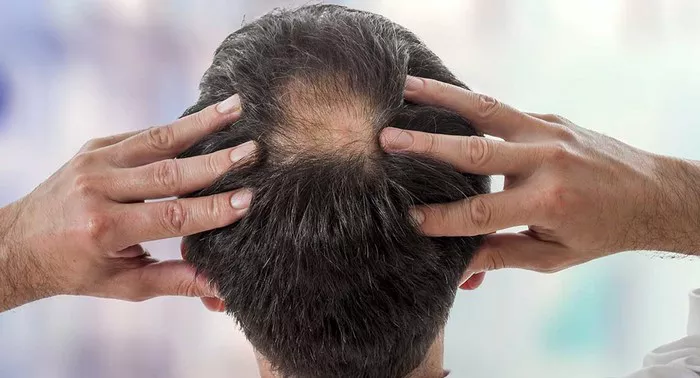Hair loss is a well-known side effect associated with numerous medications, often reversible when the medication is discontinued or its dosage is reduced. This article explores the medications that can lead to hair loss, the mechanisms behind it, and offers insights into prevention and potential remedies.
How Medications Trigger Hair Loss
Several commonly prescribed medications can induce temporary or even permanent hair loss. Medications influence hair in two ways: by impeding hair growth or causing premature hair shedding. In some cases, both phenomena may occur simultaneously.
Understanding the natural hair growth cycle is crucial. Each hair strand undergoes a sequence of growth, transition, and rest. The growth phase, known as anagen, lasts from a few months to a few years, during which the hair follicle consistently produces hair. The transitional phase, catagen, involves shrinking hair follicles and a slowdown in growth. Finally, the resting phase, telogen, lasts about 100 days, during which hair shedding occurs only when the follicle re-enters the anagen phase, producing a new hair shaft.
Types of Medication-Induced Hair Loss
Anagen Effluvium: This process involves medication halting hair growth, often observed within days or weeks of starting the medicine. Commonly associated with anticancer medicines, this type of hair loss is severe and sudden, with regrowth expected a few weeks after cessation.
Telogen Effluvium: Medications causing hair loss through telogen effluvium result in excessive hair shedding, occurring prematurely during the telogen phase. Identifying this cause can be challenging due to the delay between the trigger and the onset of hair loss. However, this type of hair loss is usually not severe, and regrowth typically happens without treatment.
Medications Linked to Hair Loss
Medications causing hair loss through telogen effluvium include:
- Retinoids (acitretin, isotretinoin, Tazorac)
- Antifungals (Diflucan, Vfend)
- Mood stabilizers (valproate/divalproex, Lithobid, Wellbutrin)
- Blood thinners (Jantoven, Heparin)
- Cholesterol-lowering drugs (Lopid)
- Antithyroid medications (iodine, thiouracil, carbimazole)
- Hormonal medications (contraceptives, hormone replacement therapy, androgens, testosterone, anabolic steroids)
- Antihypertensives (Tenormin, Lopressor, Corgard, Inderal LA)
Medications causing hair loss through anagen effluvium include chemotherapeutic agents like doxorubicin, cyclophosphamide, methotrexate, and hydroxyurea.
Specific Medications and Hair Loss
Retinoids: Derived from vitamin A, oral retinoids like isotretinoin can lead to hair loss. Adjusting the dosage or discontinuing the medication is a common approach.
Antifungals: Hair loss caused by antifungals is reversible, with complete regrowth expected within three to six months after discontinuation or dosage reduction.
Mood Stabilizers: Valproate/divalproex can cause dose-dependent hair loss, often reversible within two to three months after stopping or reducing the medication.
Blood Thinners: Approximately 30% to 50% of individuals taking blood thinners may experience hair loss, with regrowth expected within three months after discontinuation.
Blood Pressure Medications: Certain blood pressure medications, including beta blockers like propranolol and metoprolol, may cause hair loss or brittleness.
Antithyroid Medications: Medications treating thyroid disorders may contribute to hair loss. Distinguishing between medication-induced and condition-related hair loss can be challenging.
Chemotherapy: Commonly associated with hair loss, chemotherapy can lead to shedding within seven to 14 days of administration.
Addressing Medication-Induced Hair Loss
Identifying the cause of hair loss is crucial before considering any action. Consultation with a healthcare provider is recommended to explore alternative medications or potential switches safely. In cases where discontinuation is not possible, options like Rogaine or Latisse may be considered.
Rogaine (minoxidil): Stimulates hair growth and should be used consistently for six to 12 months for optimal results.
Latisse (bimatoprost): A prescription drug promoting eyelash growth.
Other treatment options include scalp cooling, microneedling, corticosteroid or platelet-rich plasma injections, and laser therapy. Seeking advice from a healthcare provider or dermatologist for the most suitable treatment is advised.
Conclusion
Hair loss, a common side effect of various medications, can be distressing. Understanding the underlying causes and potential solutions is essential for individuals experiencing this issue. Whether it’s reversible or not, consulting a healthcare provider ensures informed decisions and appropriate management of medication-induced hair loss.


